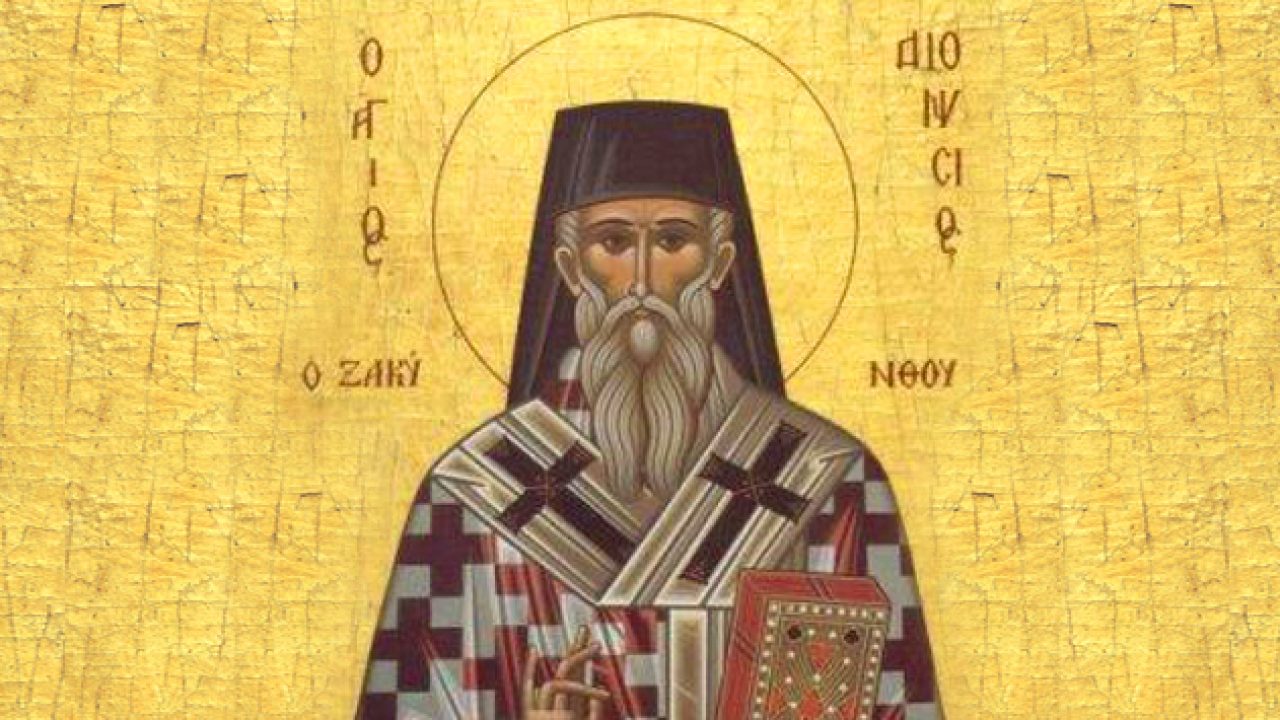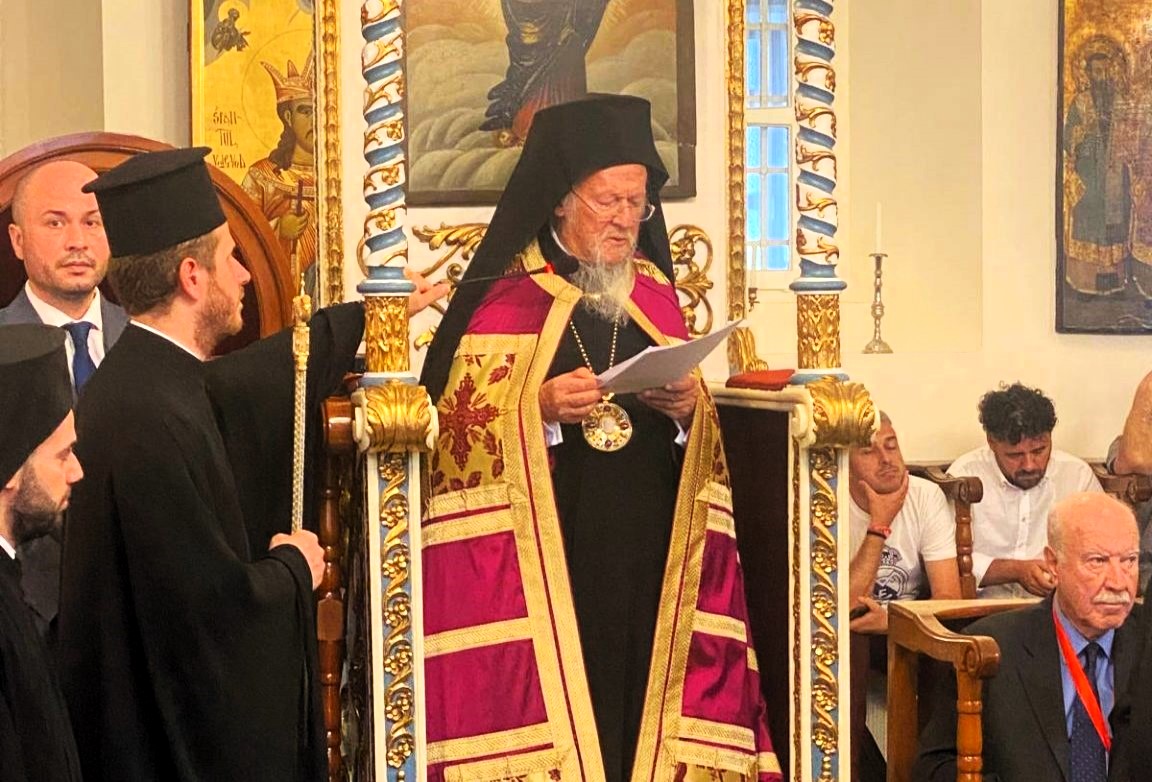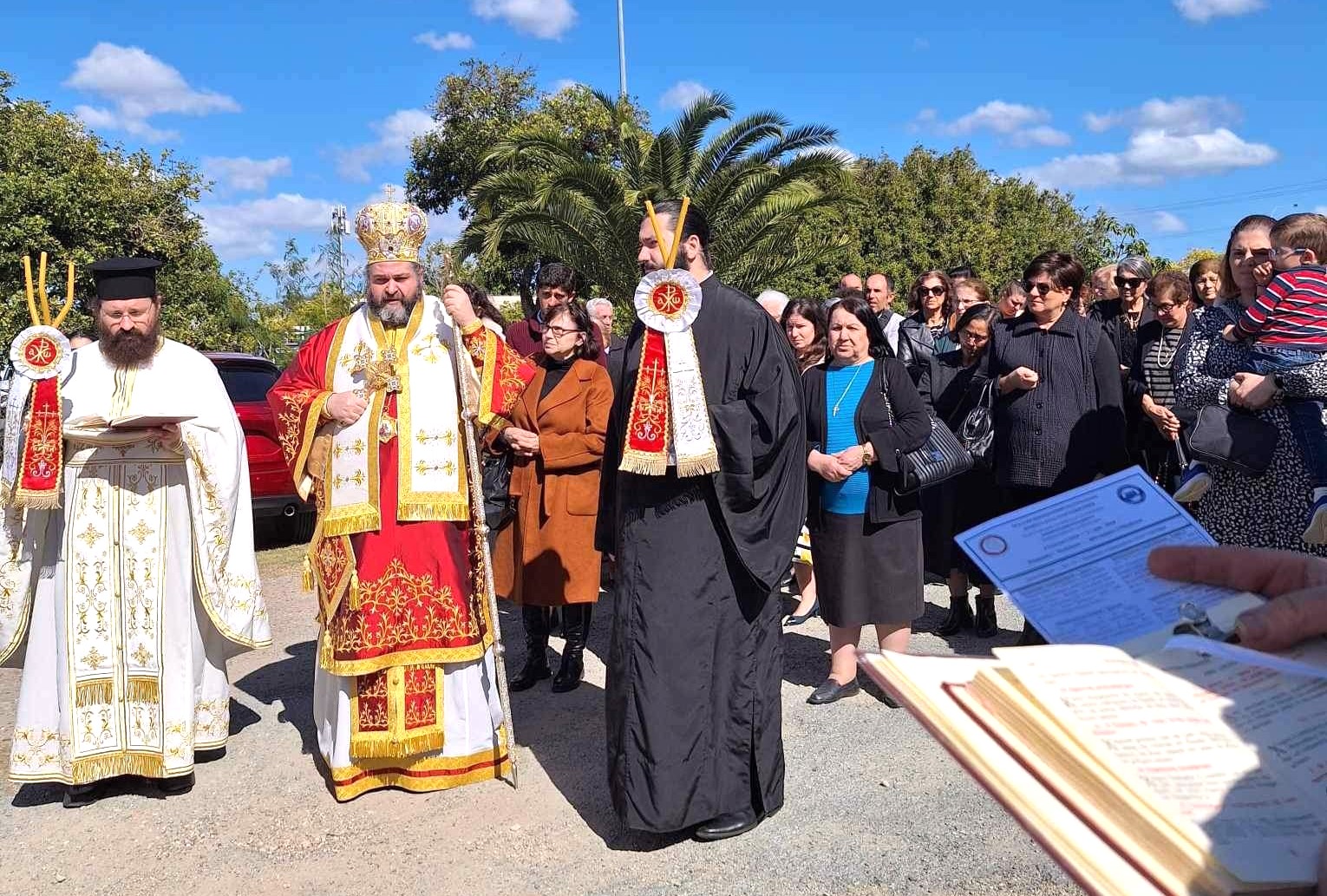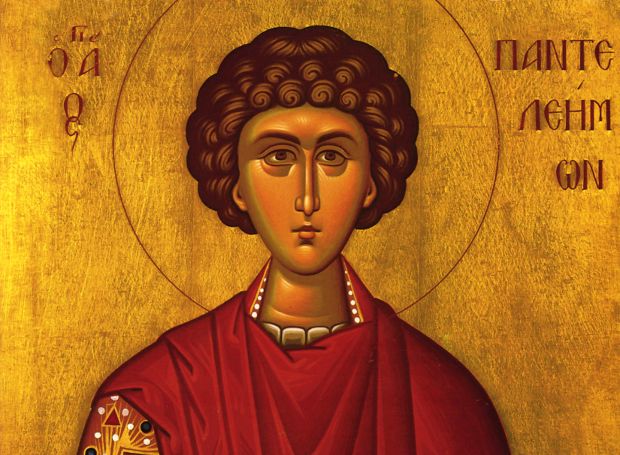Saint Dionysios of Zakynthos (17 December)


Saint Dionysius of Zakynthos, the Bishop of Aegina was born in 1547 on the island of Zakynthos. Though born into a noble family, he was determined to flee the world and set his mind upon heavenly things. He entered the monastery of Strophada, and after the prescribed time, he was clothed in the angelic schema by the abbot. Though young in years, he surpassed many of his elders in virtue, and was found worthy of ordination to the holy priesthood.
Although he protested his unworthiness, Saint Dionysius was consecrated Bishop of Aegina. In that office he never ceased to teach and admonish his flock, and many were drawn to him in order to profit from his wisdom. He feared the praise of men, lest he should fall into the sin of vainglory, so he resigned his See and returned to Zakynthos.
In 1579 the diocese of Zakynthos was widowed (when a bishop dies, his diocese is described as “widowed”), and Dionysius agreed to care for it until a new bishop could be elected. Then he fled from the worldly life which gave him no peace, and went to the Monastery of the Most Holy Theotokos Anaphonitria, twenty miles from the main village.
A certain stranger murdered the saint’s brother Constantine, an illustrious nobleman. Fearing his victim’s relatives, the stranger, by chance or by God’s will, sought refuge in the monastery where Saint Dionysius was the abbot. When the saint asked the fugitive why he was so frightened, he confessed his sin and revealed the name of the man he had murdered, asking to be protected from the family’s vengeance. Saint Dionysius wept for his only brother, as was natural. Then he comforted the murderer and hid him, showing him great compassion and love.
Soon the saint’s relatives came to the monastery with a group of armed men and told him what had happened. He pretended to know nothing about it. After weeping with them and trying to console them, he sent them off in the wrong direction. Then he told the murderer that he was the brother of the man he had killed. He admonished him as a father, and brought him to repentance. After forgiving him, Saint Dionysius brought him down to the shore and helped him to escape to another place in order to save his life. Because of the saint’s Christ-like virtue, he was granted the gift of working miracles.
Having passed his life in holiness, Saint Dionysius reached a great age, then departed to the Lord on December 17, 1624. Not only are the saint’s relics incorrupt, but he is also one of Greece’s “walking saints” (Saint Gerasimus and Saint Spyridon are the others). He is said to leave his reliquary and walk about performing miracles for those who seek his aid. In fact, the soles of his slippers wear out and must be replaced with a new pair from time to time. The old slippers are cut up, and the pieces are distributed to pilgims. On August 24, we celebrate the Transfer of his Holy Relics. Through the prayers of Saint Dionysius, may Christ our God have mercy upon us and save us.
The holy hierarch, Saint Dionysius, who was born and reared on Zakynthos, was the son of pious and wealthy parents, Mocius and Paulina by name. In his youth he entered the ancient monastery of the Strophada Islands, which lie south of Zakynthos, and there he donned the monastic habit. Later, he was appointed Archbishop of Aegina, and adorned its throne for a considerable time. Thereafter he returned to his homeland. One incident in his life especially reveals to what virtue he attained. A man came to him in desperation, witnessing that he had committed a murder, and was being pursued by the slain man’s family. He asked Saint Dionysius to give him refuge. The Saint agreed to this, upon learning that it was his own brother whom the man had slain, he said nothing, but concealing the agony of his grief, hid him. When the Saint’s kinsmen arrived at the monastery, he told them that the Murderer had gone by such and such a way. When they had departed, he admonished the man concerning the gravity of his sin, instructed him in repentance, and sent him off in peace having forgiven him his brother’s murder. According to local tradition, this man later returned and became a monk at this same monastery. Saint Dionysius reposed in peace in 1621, leaving behind his sacred and incorrupt relics as a treasure for his fellow citizens.
Apolytikion of Dionysios of Zakynthos
First Tone
The faithful son of Zakynthos, Aegina’s wise prelate, the protector of the august Monastery of Strophada, O wise Dionysius, with one voice, all we the faithful honour thee and cry: By thy prayers, save them that keep thy memorial and cry unto thee sincerely: Glory to Christ Who hath glorified thee. Glory to Him who hath made thee wondrous. Glory to Him Who made thee our unsleeping intercessor.
Kontakion of Dionysios of Zakynthos
Third Tone
On this day doth Zakynthos call all the faithful together, rousing them to offer praise in songs and hymns of thanksgiving to our great and fervent helper in needs and sorrows, who doth swiftly rescue them that are caught in perils. And she honoureth him, crying: O Dionysius, boast of the faithful, rejoice!
Source: goarch.org / oca.org




